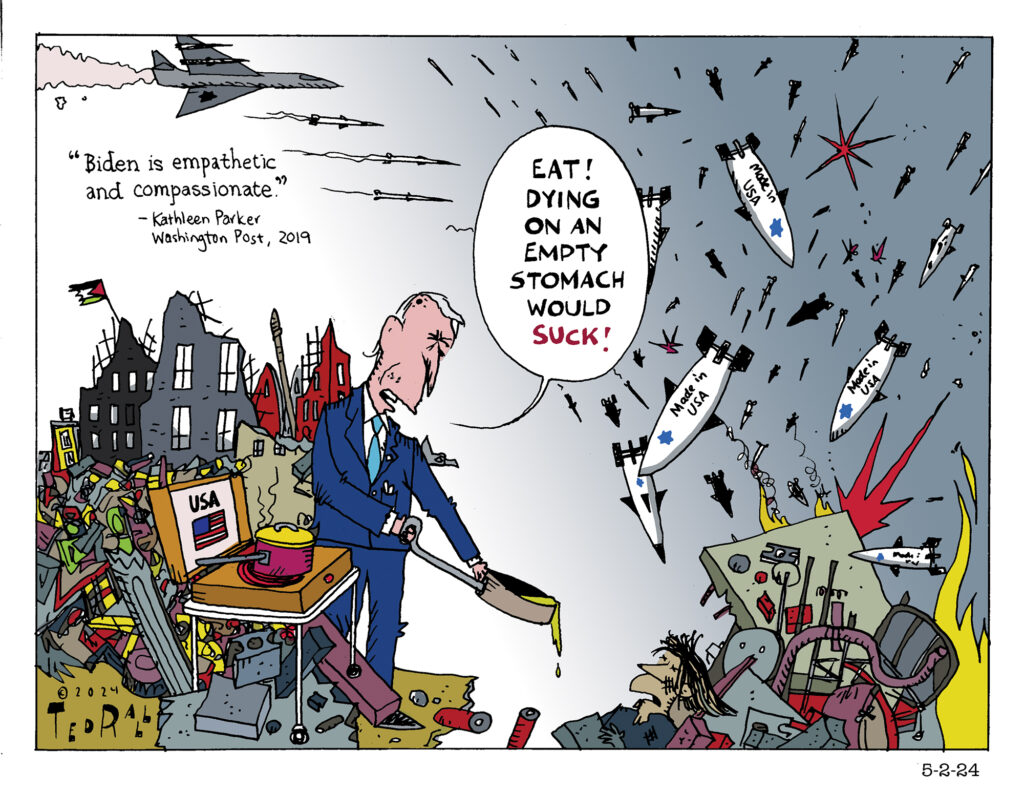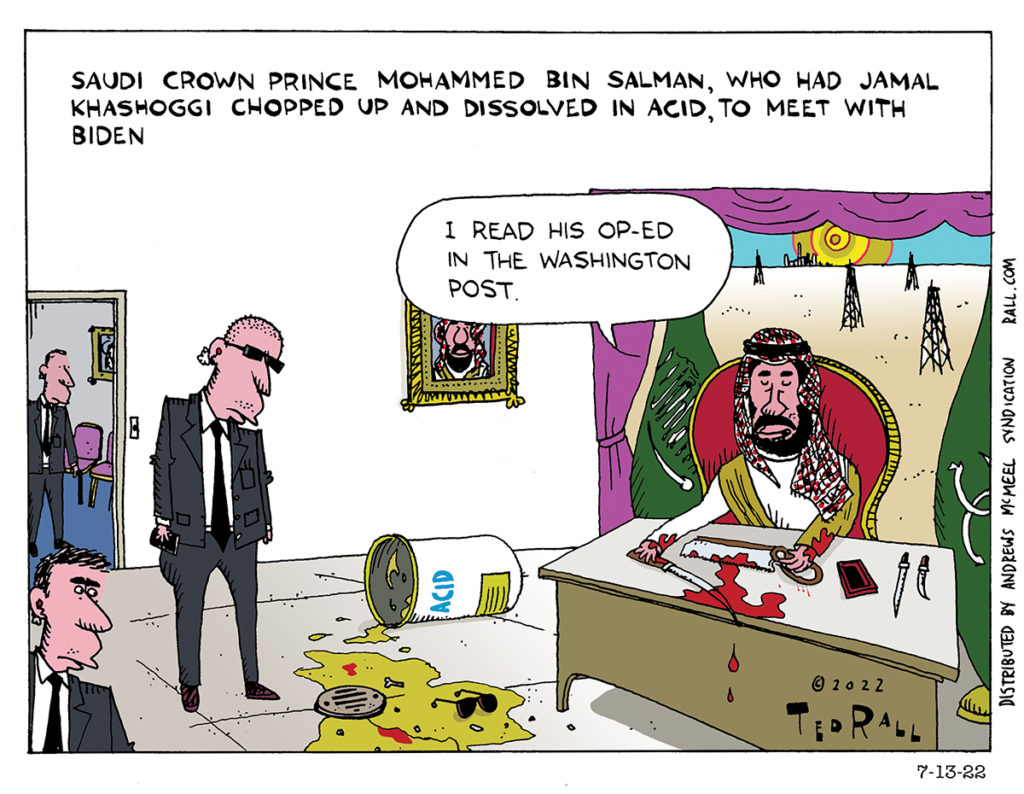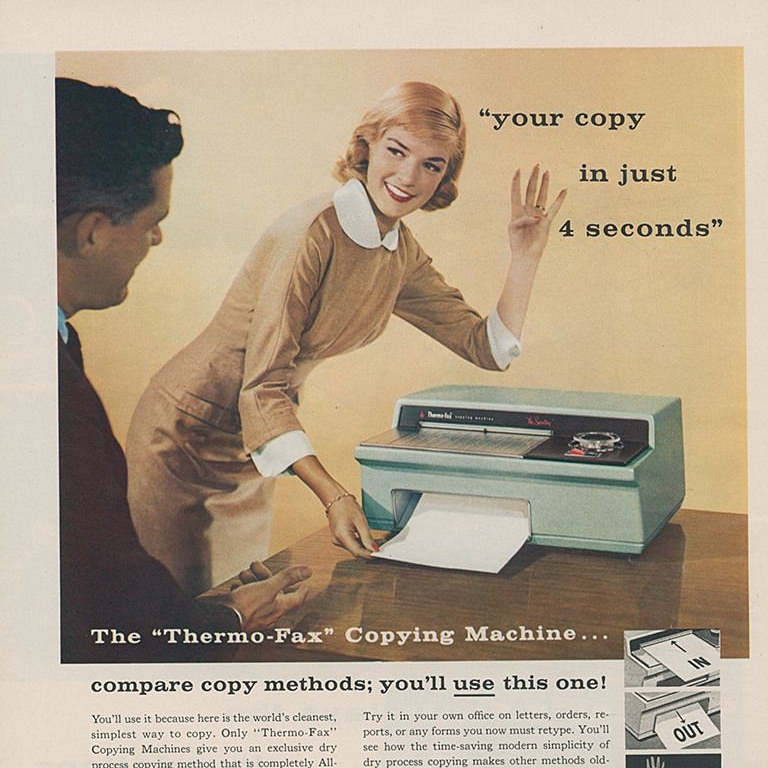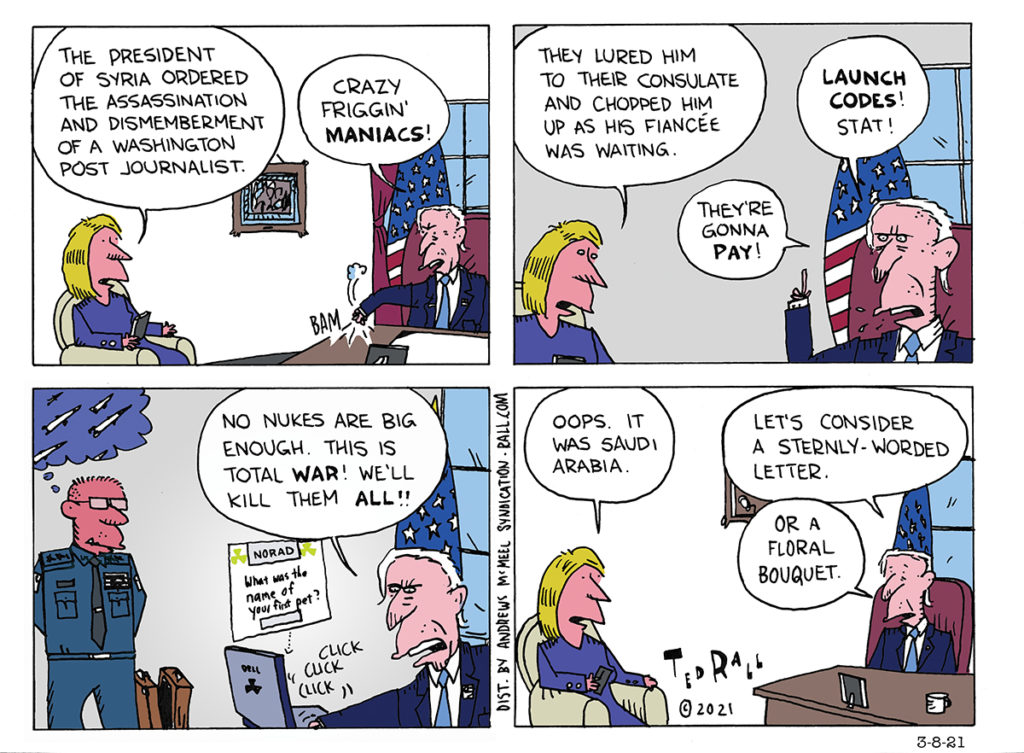
It is a truism bordering on a cliché that the Israeli state and Palestinian resistance organizations have inflicted violence upon one another, claiming the lives of thousands of innocent people on both sides. Media coverage of the carnage has been anything but evenhanded, however. Since the founding of the State of Israel in 1948, Western media have noted and covered and analyzed attacks against Israelis by groups like the PLO and Hamas in painstaking detail, while almost completely ignoring Israeli attacks against Palestinians—and the oppressive high-tech apartheid system Israel created to oppress millions of Palestinians under military occupation—this despite the fact that the death and trauma toll on the Palestinian side has consistently been many times higher.
For the last seven months, for the first time since the Naqba, Palestinian suffering has finally appeared on the radar of the Western press. As usual, this latest spasm of violence has cost many more Palestinian lives—35,000 in Gaza—than Israeli—1,200 on October 7th. (Because the official Gaza death count does not count bodies trapped under the rubble, it is an underestimate.)
That’s basically a 30-to-1 ratio. Now establishment journalists are demanding that everyone, including college student demonstrators, devote equal mention and opprobrium—good dead people on both sides, to coin a phrase.
“Note how one-sided all of this is,” complains Max Boot in The Washington Post. “While denouncing alleged Israeli atrocities, [a statement issued by Columbia University pro-Gaza protesters] has not one word of censure for Hamas or its brutal tactics, which include seizing hostages and perpetrating sexual violence, in addition to committing wholesale murder. Indeed, even though the protesters claim to care about Palestinian lives, they do not denounce Hamas for stealing international aid to build its tunnels and missiles or for using civilians as human shields. They call for Israel to stop fighting but not for Hamas to release its hostages or surrender.” What’s really one-sided, of course, is the loss of life and infrastructure. No one has flattened Israeli cities, razed its schools or demolished its synagogues, graveyards and historic sites. Protesters figure that they don’t need to mention the horrors of October 7th because the media has already done that in great detail.
To give credit where it’s due, Boot’s call for grief-concern parity is a marked improvement. In the past, neither he nor his ilk talked about Israel’s wholesale land theft in the West Bank, its concentration camps and torture facilities, or the IDF’s total lack of concern for Palestinian lives at all.
So let’s be fair. Zionists are absolutely correct that Hamas and October 7th should be condemned. Supporters of the Gazans are also correct that Israel’s insane overreaction, including its war crimes, must be condemned. Said condemnation should be in direct proportion to the scale of the acts.
Israel has slaughtered 30 times more people, for no good reason other than politics and pure entertainment, as Hamas, which did it for no good reason other than spite and attention. Going forward, therefore, Western journalism should look like this:
Hamas is disgusting and must be stopped.
Israel is disgusting and must be stopped.
Israel is disgusting and must be stopped.
Israel is disgusting and must be stopped.
Israel is disgusting and must be stopped.
Israel is disgusting and must be stopped.
Israel is disgusting and must be stopped.
Israel is disgusting and must be stopped.
Israel is disgusting and must be stopped.
Israel is disgusting and must be stopped.
Israel is disgusting and must be stopped.
Israel is disgusting and must be stopped.
Israel is disgusting and must be stopped.
Israel is disgusting and must be stopped.
Israel is disgusting and must be stopped.
Israel is disgusting and must be stopped.
Israel is disgusting and must be stopped.
Israel is disgusting and must be stopped.
Israel is disgusting and must be stopped.
Israel is disgusting and must be stopped.
Israel is disgusting and must be stopped.
Israel is disgusting and must be stopped.
Israel is disgusting and must be stopped.
Israel is disgusting and must be stopped.
Israel is disgusting and must be stopped.
Israel is disgusting and must be stopped.
Israel is disgusting and must be stopped.
Israel is disgusting and must be stopped.
Israel is disgusting and must be stopped.
Israel is disgusting and must be stopped.
Israel is disgusting and must be stopped.
(Ted Rall (Twitter: @tedrall), the political cartoonist, columnist and graphic novelist, co-hosts the left-vs-right DMZ America podcast with fellow cartoonist Scott Stantis. You can support Ted’s hard-hitting political cartoons and columns and see his work first by sponsoring his work on Patreon.)









